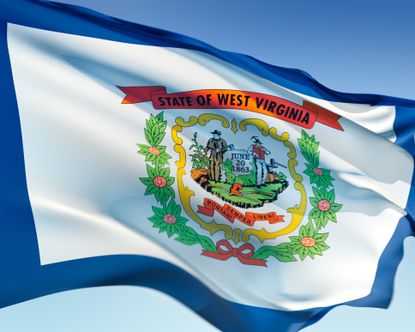
West Virginia state tax rates and rules for income, sales, property, fuel, cigarette, and other taxes that impact residents.
When you purchase through links on our site, we may earn an affiliate commission. Here’s how it works.

Most West Virginia state taxes are reasonable when compared to most other states. There are no inheritance taxes for your heirs to worry about, and the sales tax rate is about average compared to other states.
Additionally, West Virginia is one of the states where you'll pay less income tax in 2023, thanks to legislation enacted earlier this year. Property taxes in West Virginia are much lower than in most other states.
[Data for this state tax guide was gathered from several sources including the U.S. Census Bureau, the state’s government website, the Sales Tax Handbook, and the Tax Foundation. Property taxes are cited as a rate percentage rather than the assessed value.]
Be a smarter, better informed investor.
Save up to 74%
Profit and prosper with the best of expert advice on investing, taxes, retirement, personal finance and more - straight to your e-mail.
Profit and prosper with the best of expert advice - straight to your e-mail.

West Virginia tax on retirement benefits: West Virginia used to tax Social Security benefits but began phasing out the tax last year. Military pensions and Railroad Retirement benefits tax-exempt. Income from federal and West Virginia state or local government retirement plans for police, sheriffs and firefighters is fully exempt.
West Virginia Income Tax Range: Single filers, married filing jointly, heads of households, and estates and trusts
Swipe to scroll horizontally| Up to $10,000 | 2.36% |
| Over $10,000 but not over $25,000 | 3.15% of the amount over $10,000 |
| Over $25,000 but not over $40,000 | 3.54% of the amount over $25,000 |
| Over $40,000 but not over $60,000 | 4.72% of the amount over $40,000 |
| More than $60,000 | 5.12% of the amount over $60,000 |
West Virginia Income Tax Range: Married filing separately
Swipe to scroll horizontally| Up to $5,000 | 2.36% |
| Over $5,000 but not over $12,500 | 3.15% of the amount over $5,000 |
| Over $12,500 but not over $20,000 | 3.54% of the amount over $12,500 |
| Over $20,000 but not over $30,000 | 4.72% of the amount over $20,000 |
| Over $20,000 but not over $30,000 | 5.12% of the amount over $30,000 |
Local tax jurisdictions (such as cities) can impose additional income taxes.
West Virginia's sales tax rate is 6%. Localities can add an additional tax of up to 1%, and the average combined tax rate is 6.566%, according to the Tax Foundation. West Virginia is one of the states that still tax diapers and menstrual products. However, other essentials are exempt from sales tax.

On average, West Virginians pay some of the lowest property tax bills in the nation, with a median tax bill of $756.
West Virginia Property Tax Breaks for Retirees
People who are 65 years of age or older (or who have a total and permanent disability) are exempt from paying taxes on the first $20,000 of their home's assessed value. For example, if your property's tax assessed value is $200,000, you would only pay taxes on $180,000.
(Note: Additional property tax breaks, such as property tax credits, are offered to eligible homeowners. However, income requirements apply.)
| Cigarettes | $1.20 per pack |
| Other tobacco products | 12% of wholesale price |
| Beer | $0.18 per gallon |
| Wine | $1 per gallon (plus local tax) |
| Liquor | State-Controlled (Estimated $1.89 per gallon) |
West Virginia doesn't have an estate or inheritance tax.